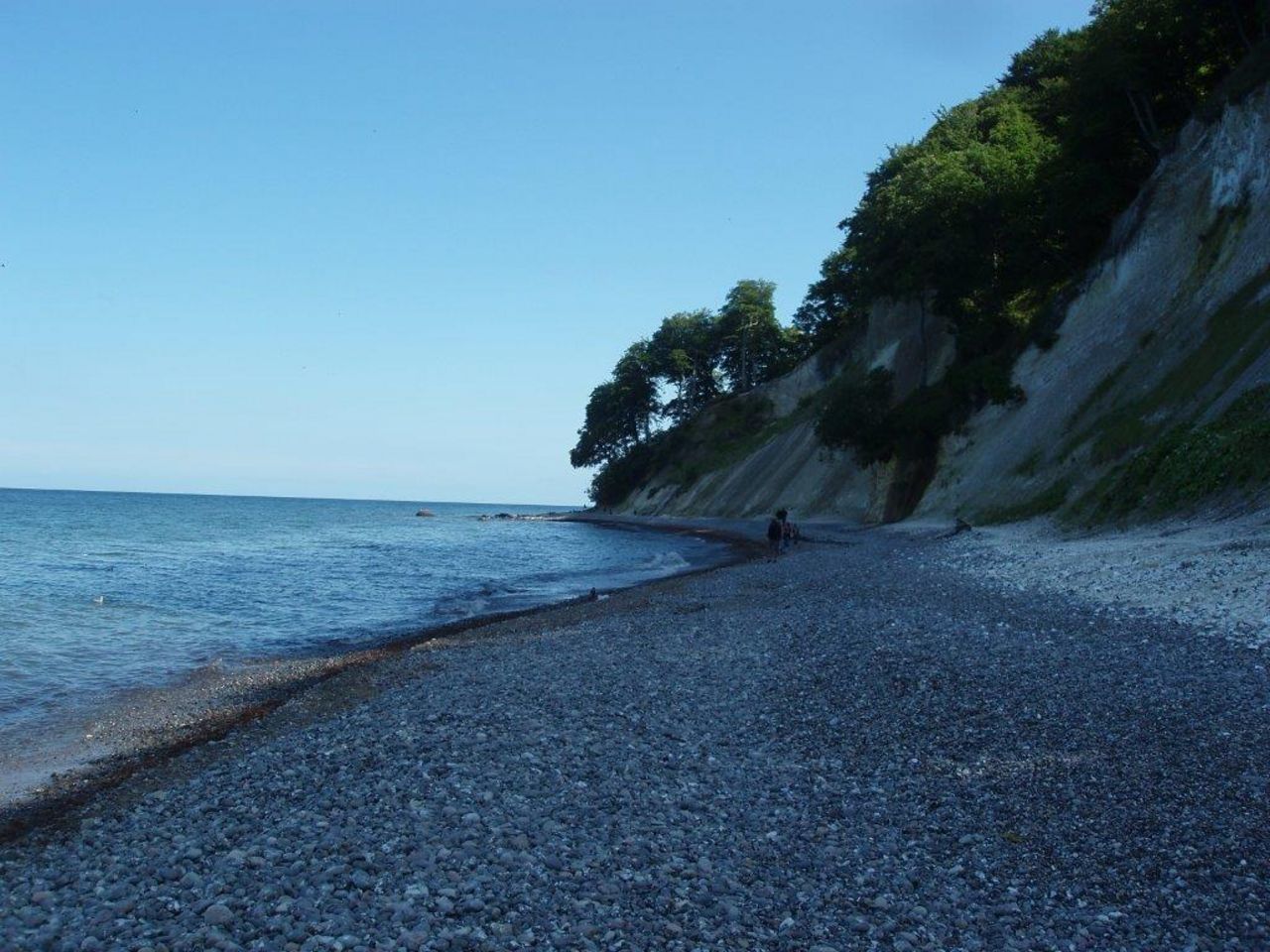Project
Climate change at the German Baltic coast- how can agriculture adapt?

Regional adaptation strategies for the German Baltic coast
As the largest land user in the Baltic Sea region, agriculture is directly affected by climate change. At the same time agricultural production influences nature and the environment, especially by nutrient inputs into waters. We analyse agricultural perspectives and adaptation strategies to climate change in the Baltic Sea region as well as measures to reduce nutrient inputs into waters.
Background and Objective
The framework conditions for agriculture are changing – also because agriculture has to adapt to climate change. This affects upstream and downstream economics markets, as well as the tourism sector. Nutrient inputs from agriculture are a recent problem that might get worse in the future. The aim of the sub-project at the Institute of Rural Studies is to analyze how regional climate changes will affect agriculture in the Baltic Sea Region until the year 2020/2025. We want to derive appropriate action strategies and evaluate how negative impacts of climate change on agriculture can be averted. In the dialog with regional stakeholders we want to develop and analyze measures that reduce nutrient inputs from agriculture.
Target Group
Regional stakeholders and political decision makers
Approach
The main aims of the joint research project are to establish regional networks and to promote the dialog within these. In parallel the research projekt conducts natural science and engineering projects, as well as socio-economic research projects, grouped into six focus themes. They reflect the main economic sectors and fields of action in the region. In application projects we develop models for regional practical solution approaches. The project partners of the Institute of Rural Studies are responsible, according to their expertise, for the analysis of agricultural production and nutrient inputs in the Baltic Sea region. We thereby start from substantiated, regionally specific initial conditions to end with the expectable development of agricultural production and the resulting ecological and socio economic affects. On this basis, reliable scenarios can be calculated and input- impact analysis can be conducted as well. With the identification of options for action for decision makers we want to support them to plan strategies and make decisions. The project results are incorporated and communicated primarily on the regional level within the project. We want to promote therewith the exchange and the discussion on the national, European and international levels.
Data and Methods
The analysis is based on available agricultural statistics as well as the climate change prognosis of different climate models. With the help of the Regional Agricultural and Environmental Information System RAUMIS, ex-post analyses as well as scenarios for alternative adaptation reactions are modeled.
Results
The project results have shown that the impacts of political and economic changes are considerably greater than the impact of climate change in the Baltic Sea Region until 2020 / 2025. Nutrient inputs from agriculture will be further reduced, however this is can vary strongly by region depending on the specific agricultural production. More project results can be found in the website (http://klimzug-radost.de) as well as in the publications.
Thünen-Contact

Involved Thünen-Partners
Involved external Thünen-Partners
-
Helmholtz-Zentrum Geesthacht
(Geesthacht, Deutschland) - Leibniz-Institut für Ostseeforschung Warnemünde (IOW)
(Warnemünde, Deutschland) -
Technische Universität Hamburg (TUHH)
(Hamburg, Deutschland) -
Christian-Albrechts-Universität zu Kiel
(Kiel, Deutschland) -
Universität Rostock
(Rostock, Deutschland) -
Ecologic Institut
(Berlin, Deutschland) -
Büro für Umwelt und Küste
(Kiel, Deutschland) -
Coastal Research & Management
(Kiel, Deutschland) -
Die Küsten Union Deutschland
(Warnemünde, Deutschland) -
Großmann Ingenieur Consult GmbH
(Dresden, Deutschland) -
Ingenieurbüro Gesellschaft für Energie und Umwelt mbH (HZG)
(Rostock, Deutschland) -
Institut für Angewandte Ökosystemforschung GmbH
(Neu Broderstorf, Deutschland) -
Leibniz-Institut für Gewässerökologie und Binnenfischerei (IGB)
(Berlin, Deutschland) -
Institut für ökologische Wirtschaftsforschung (IÖW)
(Berlin, Deutschland) - Landesbetrieb für Küstenschutz, Nationalpark und Meeresschutz Schleswig-Holstein
(Husum, Tönning, Deutschland) -
Landesamt für Landwirtschaft, Umwelt und ländliche Räume
(Flintbek, Deutschland) -
Staatliches Amt für Landwirtschaft und Umwelt Mittleres Mecklenburg
(Rostock, Deutschland)
Duration
7.2009 - 12.2014
More Information
Project status:
finished
Publications to the project
- 0
Ackermann A, Mahnkopf J, Heidecke C, Venohr M (2016) Reducing agricultural nitrogen inputs in the German Baltic Sea catchment - trends and policy options. Water Sci Technol 74(5):1060-1067, DOI:10.2166.wst.2016.267
- 1
Wagner A, Heidecke C (2014) Modul 1: Netzwerkbildung und Dialog zur Entwicklung von Anpassungsstrategien : Fokusthema 3: Gewässermanagement und Landwirtschaft. RADOST Berichtsr 27:64-65
- 2
Wagner A, Heidecke C (2014) Modul 3: Sozio-ökonomische Analyse : Die Entwicklung der Landwirtschaft im Klimawandel (Agrarsektormodellierung). RADOST Berichtsr 27:136-138
- 3
Blobel D, Dreier N, Enderwitz S, Filies C, Fröhle P, Haller I, Heidecke C, Hirschfeld J, Mahnkopf J, Schernewski G, Schlamkow C, Scholz R, Schröder A, Wagner A (2014) RADOST - Regionale Anpassungsstrategien für die deutsche Ostseeküste. In: Biebeler H, Bardt H, Chrischilles E, Mahammadzadeh M, Striebeck J (eds) Wege zur Anpassung an den Klimawandel : Regionale Netzwerke, Strategien und Maßnahmen. Köln: Institut der deutschen Wirtschaft Köln Medien GmbH, pp 147-168
- 4
Hirt U, Mahnkopf J, Gadegast M, Czudowski L, Mischke U, Heidecke C, Schernewski G, Venohr M (2013) Reference conditions for rivers of the German Baltic Sea catchment: reconstructing nutrient regimes using the model MONERIS. Reg Environ Change 13(5), DOI:10.1007/s10113-013-0559-7
- 5
Hirt U, Mahnkopf J, Venohr M, Kreins P, Heidecke C, Schernewski G (2012) How can German river basins contribute to reach the nutrient emission targets of the Baltic Sea Action Plan? In: Sorial GA, Hong J (eds) Environmental science and technology : proceedings from the Fifth International Conference on Environmental Science and Technology, held on June 25-29, 2012 in Houston, Texas, USA. Houston: American Science Press, pp 421-427
- 6
Heidecke C, Kreins P, Stonner R, Gömann H (2011) Global change impacts on agricultural land use in the German Baltic Sea Catchment Area. Coastal Res Libr 1:71-89

![[Translate to English:] [Translate to English:]](/media/_processed_/2/0/csm_LV_Bei_Hornburg_Quelle_Johanna_Fick_neu_da89674833.jpg)
![[Translate to English:] [Translate to English:]](/media/_processed_/2/0/csm_LV_Bei_Hornburg_Quelle_Johanna_Fick_neu_3aae309567.jpg)
![[Translate to English:] Logo des Bundesministerium für Ernährung und Landwirtschaft](/media/allgemein/logos/BMEL_Logo.svg)